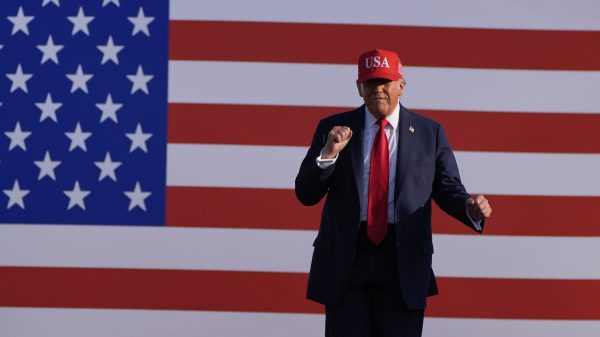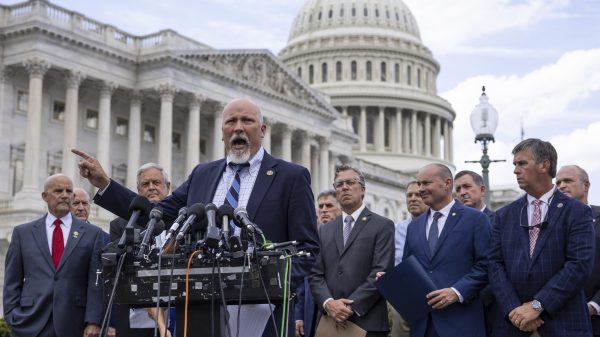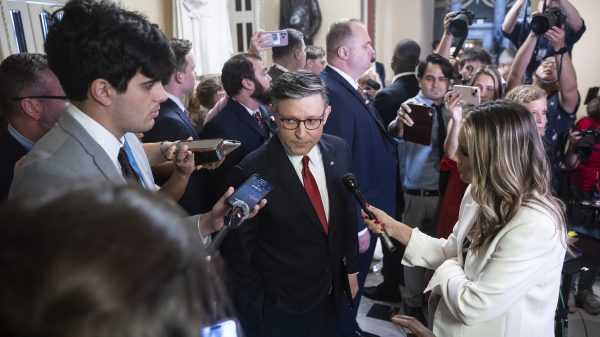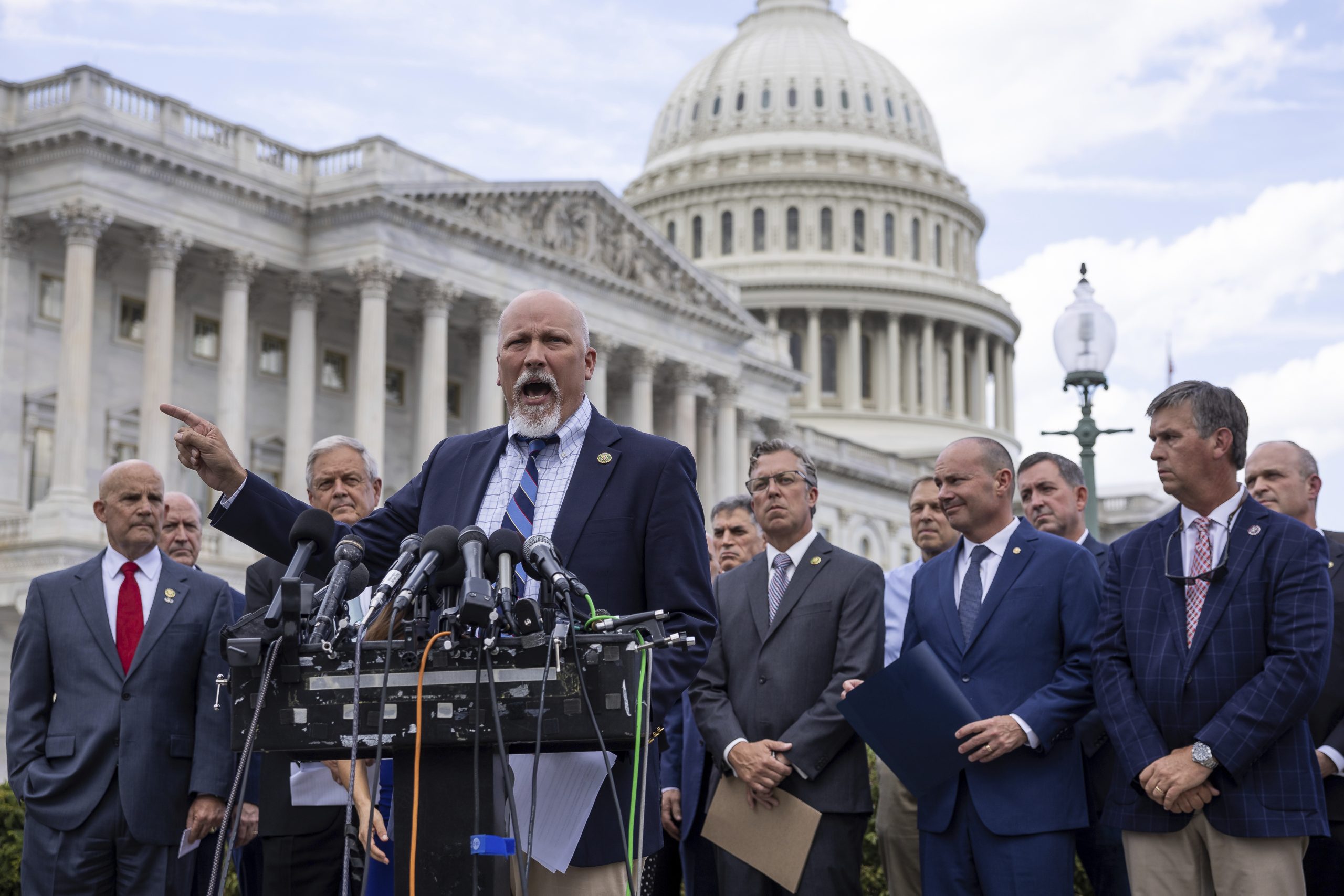It used to be the congressional equivalent of a five-alarm fire: Members of the House Freedom Caucus were holding out, refusing to go along with Republican leaders’ plans for high-stakes legislation.
But when Speaker Mike Johnson brought the GOP’s “big, beautiful bill” to the House floor this week, few were surprised when the band of hardcore conservatives threatened once again to take down the bill. And even fewer took their threats seriously.
“They do this every time — every dadgum time,” said Rep. Tim Burchett (R-Tenn.), a hard-right member who himself has occasionally held out on GOP leaders.
The endgame was in fact predictable: A band of about 10 hard-right members refused to vote the party line on a series of procedural votes Wednesday night and Thursday morning, prompting an all-hands-on-deck negotiating blitz that left the House in limbo for hours.
In the end, they all ended up voting for the bill.
It was the latest episode calling the aims of the Freedom Caucus into question as President Donald Trump asserts his dominance over the Republican Party and Washington in general. Founded under a Democratic president and forged by veterans of the tea party movement, the group is now finding it hard to buck the most powerful Republican leader in generations. After the vote closed Thursday, multiple Freedom Caucus members cast their interventions as crucial in moving the centerpiece of the GOP’s domestic policy agenda to the right.
“If you go back six months ago, we were told no Medicaid,” Rep. Chip Roy of Texas, a key Freedom Caucus leader, said, referring to Trump’s promises not to touch the joint federal-state health program. Ultimately, the bill is set to make $1 trillion worth of cuts over the coming decade.
“I wanted more — we should have done better,” Roy added. “But at the end of the day, [we got a] pretty historic bill.”
The problem their less confrontational colleagues see is that the band of hard-liners is constantly drawing red lines and delivering ultimatums, only to violate them — sometimes in a matter of hours.
The caucus, for instance, circulated a three-page memo Wednesday detailing a litany of objections the group had identified in the Senate-passed bill, ranging from its expanded deficits to the fact it omitted gun-related provisions the group had sought and that it expanded a key tax break mainly claimed in blue states. It ended up backing that flawed product with no more than handshake assurances their concerns would be addressed.
Roy spent months insisting that the bill adhere to a fiscal compromise he struck earlier this year with Johnson and other Republican leaders. He continued to warn leaders against violating the deal, lambasting the Senate for going hundreds of billions of dollars sideways, only to come along in the end.
“There’s definitely conversations about a second reconciliation bill,” Roy said Thursday, referring to promises from Johnson and others that he would pursue more party-line legislation to reduce deficits.
Elsewhere in the GOP, the brinkmanship is wearing thin — and the overnight negotiations hardly endeared the hard-liners to their colleagues.
“They called their own bluff,” said Rep. Derrick Van Orden (R-Wis.), a frequent critic of the bloc. “How many times have they done this? I mean, I’ve been in Congress for two years and five seconds, and they pulled the same stunt 19 times. So they’re over. The influence of the Freedom Caucus is over.”
Beyond the second bite at a deficit-busting bill, several Freedom Caucus members said they won assurances from White House officials on other matters.
Roy said he notched a promise to dial back what he said was the “effectiveness” of an amendment preserving some clean energy tax credits negotiated by Alaska Sen. Lisa Murkowski and other GOP senators in their own last-minute deal.
“I probably spent about six hours yesterday with some lawyers in the administration about what they can do, frankly, to reverse … the Murkowski language that got put in there,” he said.
What Freedom Caucus members didn’t get were any actual changes to the bill. Trump wanted the bill on his desk for a July 4 celebration and indicated to members of the bloc in a White House meeting Wednesday that he would not allow it to go back to the Senate — potentially creating weeks of delay.
“It became clear … the bill’s closed — there’s going to be no more amendments to the bill,” Majority Leader Steve Scalise said in a brief interview Thursday morning.
Trump and GOP leaders, in fact, were all too eager to put down the rebellion. Between the White House meetings, visits from Budget Director Russ Vought and other key White House officials, and Trump calling into the Republican cloakroom overnight, they muscled the hard-liners to “yes.”
Rep. Andy Harris (R-Md.), the Freedom Caucus chair, touted “significant agreements with the administration overnight on executive actions, both inside and outside of the bill, that will make America great again.” Rep. Keith Self (R-Texas) said the holdouts received “fiscal” assurances from the administration, while Rep. Eric Burlison (R-Mo.) said, “We had significant concerns and so you can imagine we got significant commitments.”
Earlier Wednesday, Rep. Ralph Norman (R-S.C.) also appeared hell-bent on opposing the bill.
GOP leaders held open one of the procedural votes and Scalise told reporters they were waiting for two members to return after storms snarled flights into Washington. A smiling Norman insisted to reporters “it’s not the weather” delaying the vote.
But less than two hours later, Norman emerged from a meeting with Vought with a completely different attitude and suggesting his vote was back in play.
In that room and others on Wednesday, the hard-liners raised deep concerns with the Senate-passed bill and groaned about the demise of the budget plan they’d negotiated with the speaker. But GOP leaders were not sympathetic.
One Republican in the room granted anonymity to describe the private exchange recounted the leaders’ reply: “It’s as good as we’re going to get.”
Later, after voting for the bill, Norman explained his turnabout: “We got as much as we could get.”
Benjamin Guggenheim and Nicholas Wu contributed to this report.



















